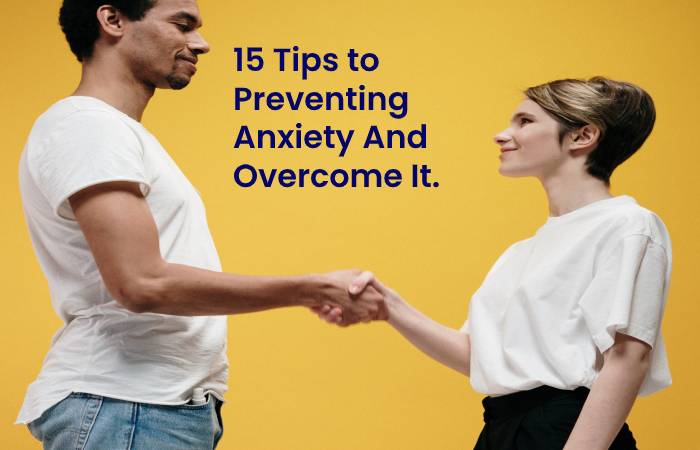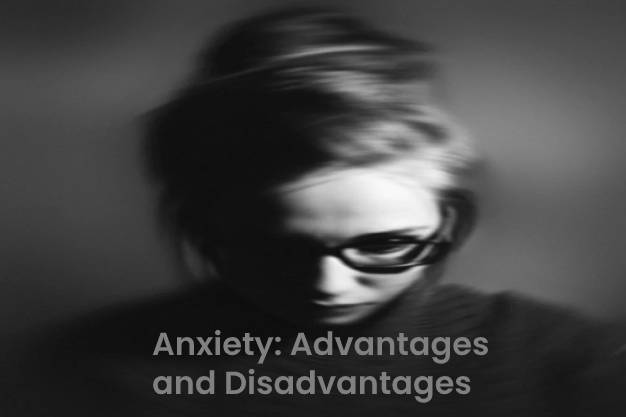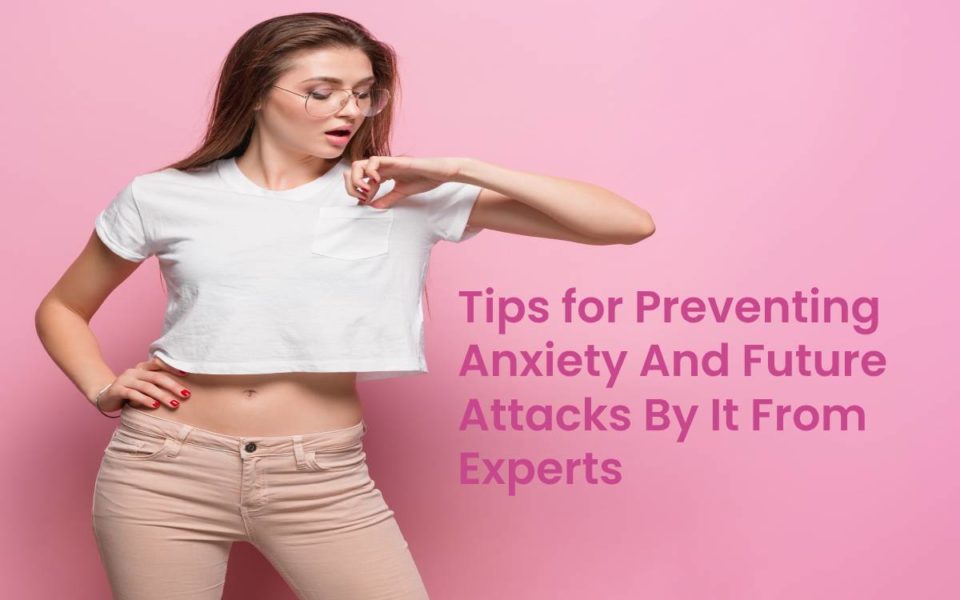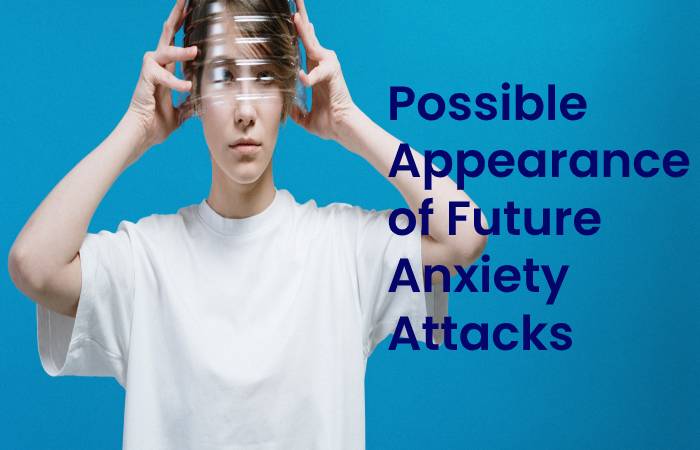Once you have studied the different techniques on how to control anxiety, you can take note of these tips that complement the most effective strategies for Preventing Future Anxiety Attacks.
Table of Contents.
Because of the possible appearance of future anxiety attacks, it is worth considering these questions:
- You must understand how anxiety works to be able to identify its symptoms and prevent them from going further.
- Crucial: Don’t run away. Choose the anxiety control technique that best suits your personality and put it into practice, but trying to get rid of anxiety by escaping it is counterproductive and harmful.
- Speak fearlessly about your feelings and express them, not doing so can accumulate tensions in your body and bad vibrations in your mind. Feeling ashamed of our situation can be a great enemy. Don’t let it invade you.
- Take care of your diet. It is essential to have the nutritional energy supply that we need to face day-to-day challenges.
- Get regular physical exercise. By doing so, we release toxins and subsequently feel more relaxed and content.
- Get adequate rest. Sleeping well avoids stress.
Also Read: Positioning and Design Benefits of an Aquarium at Home to Get Good Luck
Can we Spot And Preventing Anxiety in Other
Unlike Physical ailments, anxiety can be hard to spot, since they don’t manifest with visible spots or raise in body temperature. However, if you know what you are looking for, then it becomes easier to discern a highly strung person from more intense and disordered anxiety.
Here are the seven signs that a friend a family member might have an anxiety disorder:
- Often appearing on the edge and irritable.
- Giving a sense of being on edge easily startled or even hyper vigilant
- Expressing fearful and catastrophic thoughts.
- Sleeping poorly and waking up tired
- Doing things in a certain way to reduce anxiety and regains a feeling of control.
- Being avoidant of situation that prompt worry or anxiety
- Unable to rationalize easily or examine beliefs in a logical way.
Also read: How To Make Moon Water? To Cleanse and Empower Yourself
15 Tips to Preventing Anxiety And Overcome It.

Once we are clear about what anxiety is, we are ready to take advantage of its benefits and avoid its drawbacks. Here we will give you several recommendations to control anxiety.
1. Remember that anxiety is in your head
It is difficult to think of this when this emotion invades us. However, with a little effort, we can be aware that it is within us, and we can control anxiety. Understanding this mechanism and knowing that it is transitory is beneficial to react more calmly to it.
2. Analyze what causes anxiety
Knowing what provokes our emotions and how we act before them allows us to understand ourselves better and develop our emotional intelligence. It does not mean turning the thoughts that cause discomfort, and it is about knowing what this emotion makes us feel to control this stimulus.
3. Don’t be too critical of yourself to Preventing Anxiety
It is vital to reflect on what we do, both on our merits and our pending tasks. But it is also essential that we do not judge ourselves excessively harshly.
We must speak to ourselves delicately. That is to say, and it is necessary to avoid thoughts such as “I am useless and soft” or “I will never be able to face my fears.” Thinking “easy, you can do it” or “cheer up, and you are progressing a lot” will improve our self-efficacy, our self-control, and our self-esteem.
4. Take a positive attitude
It is difficult to see the good side of situations that overwhelm us deeply. There are facts that we cannot change. However, we can decide how we will act in most states, and we will always be able to intervene in our way of reacting to any circumstance.
5. Act in situations that concern you
It is essential to think before acting. However, when we spend too much time mulling over possible solutions to a given event or focus on its negatives, we cause unnecessary discomfort. There are several problems solving techniques that enable us to face any adversity.
6. Share your emotions with your loved ones
Emotional education is an essential part of our learning. They may never have taught us how to express our feelings, or it may be especially tricky for us. But it is never too late to start saying how we feel and discuss our experiences with others. We need to vent and be supported. Talk to your loved ones without hesitation if you are concerned about something.
7. Spend time on your favorite activities
You may think that this is impossible with the pace of life you lead. However, it is essential to set aside time a day to be happier. Engaging yourself too much at work or attending to other people’s needs and forgetting yourself is counterproductive to our performance.
8. Maintain healthy habits
They have already told you on several occasions the importance of sleeping well, eating correctly, not spending too many hours in front of the computer. However, taking care of our physical and mental health is essential to be well. We cannot imagine to what extent a healthy life influences our state of mind.
9. Watch your breath for Preventing Anxiety
Abdominal breathing can significantly decrease anxiety. Breathe slowly and deeply repeatedly when you notice the symptoms of anxiety, and you will see how you feel better by practicing the observation of our breath.
10. Practice mindfulness
This meditation technique is booming lately. It helps us to be aware of the present moment. It improves our attention and allows us to achieve balance and well-being.
11. Try Jacobson’s progressive relaxation
This technique helps us to rest and intervenes directly on our entire body, relaxing each part individually. It effectively reduces both the physical and psychological discomfort that anxiety produces.
12. Lean on ICT
The dizzying progress of technology also brings us advances to take care of our mental health. For example, some apps help us reduce our worries, put us in contact with an expert, or propose exercises to improve our management of emotions every day.
13. Look for information about anxiety from reliable sources
Many media and some of our acquaintances do not know for sure what anxiety is and recommend ineffective solutions to treat it or even deny that it exists. It is preferable to consult the words of well-informed people.
14. Ignore the prejudices of people who do not know what anxiety is
The meaning of anxiety is unknown to many people. They carelessly claim “having anxiety means being weak or wanting to get attention.” However, his attitude is due to his ignorance regarding this issue.
15. Don’t self-diagnose to Preventing Anxiety
If you have an anxiety disorder (or any other type of problem), it is preferable that you seek professional help. By consulting, the professionals are widespread, and experts know how to diagnose and apply solutions that significantly improve the quality of life of people who suffer from them. However, you must remain calm and trust the specialists.
Anxiety: Advantages and Disadvantages

When we talk about what anxiety is, we generally focus on its most negative aspects. It provides a more optimistic view of this emotion. In reality, well-controlled anxiety is a gift that our body gives us.
Advantage
- It forces us to pay attention to the essential elements: it improves our concentration (if it is well managed) and sharpens our senses. When we think of the definition of anxiety, we tend to overlook such positive effects as this and focus on the confusion it sometimes causes.
- It warns us of danger: What would happen if this emotional reaction did not pressure you to avoid suspending? Fortunately, before an exam or any similar situation, our body warns us that it is time to start studying.
- It forces us to launch our resources: This emotion helps us from time immemorial to fight to survive and helps us to make better decisions.
- It improves our performance: It drives us to solve the problem that gives rise to our expectations of fear or threat. Despite its bad reputation, anxiety means being able to count on a powerful impulse to adjust to changes.
Disadvantages
- Deteriorates mental and physical health: As we have seen in the previous section, it can lead to notably maladaptive disorders.
- It hurts social relationships: An uncontrolled anxiety pushes us to stop interacting with other individuals or behaving unusually with them. Likewise, the ignorance of what concern is by various people makes communication with them difficult.
- Performance decreases: Although controlling anxiety drives us to face challenges if it is excessive, it can also affect us when it comes to working, interacting with people, or doing daily activities.



